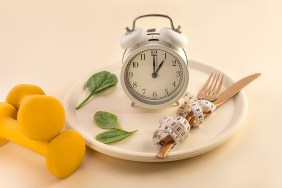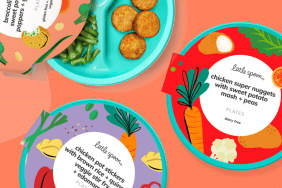With the release of the Katie Couric-produced documentary Fed Up and books like Michael Moss‘ Salt Sugar Fat: How the Food Giants Hooked Us, the general public is becoming increasingly savvy as to just how much hidden sugar is in the foods we eat every day. Because of its addictive nature, food manufactures add sugar into pretty much everything imaginable — even savory foods (covering the sugar traces with high amounts of sodium, for a double-dose of bad news). With so much misinformation out there, we spoke with Jennifer Mielke, a Dr. Lipman Be Well Health Coach, to find out more about whether all sugar is really bad, whether sugar from fruit is the same as sugar from cookies and how we can avoid hidden sugars.
theFashionSpot: There are seemingly endless types of sugar, but can you give us the breakdowns of the major ones?
Jennifer Mielke: Refined Sugar: Don’t be fooled into thinking that white table sugar is the only one to look out for. Even products touted as “natural” like cane sugar, Florida crystals, fruit juice concentrate, beet sugar and agave are all highly-processed and refined sugars that are best to stay away from.
Artificial Sweeteners: These are dirty little tricksters — you think you’re doing something better by avoiding the calories of sugar, but instead you get chemical compounds that have been shown to actually stimulate your appetite and supercharge your sweet tooth. The most popular are sucralose (Splenda) and aspartame (Equal and NutraSweet). Please avoid these at all cost!
Natural Sugars: Sugar is sugar, so don’t get excited and start pouring honey over everything and think that you’re all clear. Even natural sugars cause spikes in insulin levels and can lead to weight gain, diabetes and other sugar-driven health concerns. The benefit of natural sweeteners like honey, maple syrup and molasses is that they also come with vitamins and minerals. Stevia is a sweet herb that doesn’t have an impact on blood sugar, so it can be a good choice, just make sure the product you buy is 100% organic stevia.
tFS: Does our body digest these sugars differently?
JM: Yes, in that artificial sweeteners have a reduced affect on your insulin levels, though many studies are now calling into question the idea that they don’t have any affect on your insulin levels. However, when it comes to natural sources of sugar, sadly the answer is no — sugar is sugar. When eating foods that are high in carbohydrates and sugars, your blood sugar level goes up, and your pancreas secretes insulin, a hormone to help transport the sugar into your cells for energy. Now, our bodies are very efficient, so if the cells have enough fuel for energy and there’s still leftover sugar in the bloodstream, then the insulin carries it along to be turned into fat and stored for future use. This process occurs regardless of the original source of sugar.
tFS: Many diets advocate strictly limiting fruit. What is your take on that? Is all sugar created equally?
JM: There isn’t a completely clear-cut answer to this. As explained above, sugar is processed by the body the same regardless of its source. However, it’s much easier to over-consume sugar when it comes devoid of fiber and other nutrients. For example, a cookie and an apple may both have 10 grams of sugar, but you’re much more likely to eat five cookies than five apples. That being said, if you’ve plateaued with weight loss, and you’ve already cut out all the obvious sugar-laden foods from your diet, then you may want to try cutting out fruit for a time to test if that’s what’s holding you back.
tFS: Sugar may be sugar, but you can’t say that sugar from fruit is like sugar from cookies, right?
JM: The sugar is not different. Sugar from fruit, sugar from cookies, sugar from grains — it all triggers the same metabolic process. The questions I ask about sugar in the food I eat are: First — quantity, how many grams am I consuming? This is most important, regardless of source. Second — is it highly refined? This introduces other bad things like bleaching agents, etc. Third — am I getting anything else of value along with the sugar? This is where the distinction between fruit and cookies comes in most glaringly as the fiber in fruit can help curb appetite (see more about why getting the fiber in fruit is important here).
tFS: What fruits are “the best” and “the worst” when it comes to sugar content?
JM: Dried fruit and fruit juices are definitely the worst, so consume those with caution, if at all. Raspberries and strawberries are excellent choices — they are low in sugar and packed with antioxidants as well. Cup for cup, watermelon is surprisingly low in sugar, but because of its high water content, it’s easy to consume more than one cup, so make sure you’re paying attention to how much you’re eating. Grapes are quite high in sugar, as are pineapples and mangos, so be extra careful about these.
tFS: You mention paying attention to how much fruit you’re eating. Does that mean you can eat too much? I don’t think anyone has ever said they’ve gotten fat from eating too many apples…
JM: You can absolutely eat too much fruit. It’s less of a concern if you’re eating whole fruit, but fruit juices, and even veggie juices, which often add apple, carrot and beets to make them taste better, are things to keep an eye on. You’re probably not going to get fat from eating too many apples, but it is definitely possible to experience the brain fog, sleepiness and other symptoms that go along with sugar crashes if you’re eating large quantities of fruit.
I don’t think you need to “avoid” any fruit, you just need to be mindful about your consumption. Don’t eat a quarter of a watermelon or four oranges in one sitting and think it’s a healthy choice. I think fruit is delicious and delivers a lot of great nutrients and shouldn’t cause any stress for most people. It’s great to quench a sugar craving. Just don’t overdo it.
tFS: There is so much hidden sugar in food these days. Any items people might find particularly surprising that have hidden sugars?
JM: My pet peeve is protein bars and energy bars. Many of them have as much sugar as cookies — 20+ grams per serving! That’s five teaspoons of sugar — this is NOT a healthy snack. Other annoying places that sugar shows up is condiments and salad dressings. Do I really need 6 grams of sugar in 1 tablespoon of BBQ sauce? No thanks! Check ingredient lists, or better yet, experiment with making your own dressings and marinades — they’re pretty easy to improvise once you get the general idea.
tFS: Tips for curbing sugar addictions?
JM: Distract, replace and remove. When a sugar craving comes on, note that it’s happening and try to find a distraction — go for a quick walk, get a change of scenery, chat with a friend or co-worker. Even a few moments of mindful breathing can put a little space between you and your craving and make it easier to hold off. If that doesn’t work, try a healthy snack like some fresh berries, avocado, nuts and seeds, or even mint tea. Usually these tricks will work, but sometimes the craving persists, so I generally recommend that people who are trying to quit sugar keep their space free of sugary treats. It’s much easier to hold off against a craving if there’s not a bar of chocolate softly calling to you from your desk drawer.
tFS: What kind of improvements can people expect by limiting sugar?
JM: More energy, less cravings, more mental clarity, less daytime sleepiness, weight loss and improved mood (sugar has been linked with depression and anxiety), to name a few!








